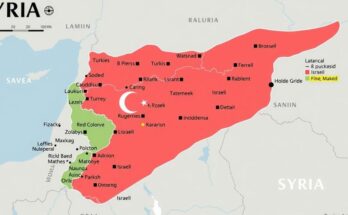Nicolás Maduro was sworn in for a new term amid protests against his election. His defiant speech claimed victory over foreign opposition and highlighted his reliance on security forces to maintain power. The legitimacy of his election remains disputed internationally, with sanctions and protests stemming from claims of electoral fraud.
On Friday, Venezuelan President Nicolás Maduro was sworn into office for a new term despite ongoing protests and allegations of election fraud. His swearing-in ceremony took place within the heavily fortified legislative palace, underscoring his dependency on security forces to maintain his grip on power following a contested election last year. In a passionate address, Maduro labeled his opponents and the United States as antagonists attempting to escalate tensions against his government, claiming his inauguration represented a triumph for Venezuela’s sovereignty and peace.
In recent years, Venezuela has experienced significant political turmoil, with Nicolás Maduro accused of authoritarian governance and election manipulation. The legitimacy of the 2022 presidential elections has been widely disputed, prompting international condemnation and calls for new sanctions, particularly from the United States and other nations. Maduro’s administration has faced mounting protests from citizens dissatisfied with the deterioration of economic conditions and democratic processes within the country. His reliance on military and security forces for protection emphasizes the precarious nature of his regime.
Overall, Nicolás Maduro’s recent inauguration highlights the continued polarization within Venezuelan politics and the international community’s response to perceived electoral misconduct. His defiance in the face of protests and foreign condemnation illustrates the complexities of governance in a nation facing deep socio-economic challenges. Maduro’s rhetoric reflects his commitment to portraying his leadership as legitimate, despite ongoing disputes surrounding his electoral victory.
Original Source: www.scmp.com




